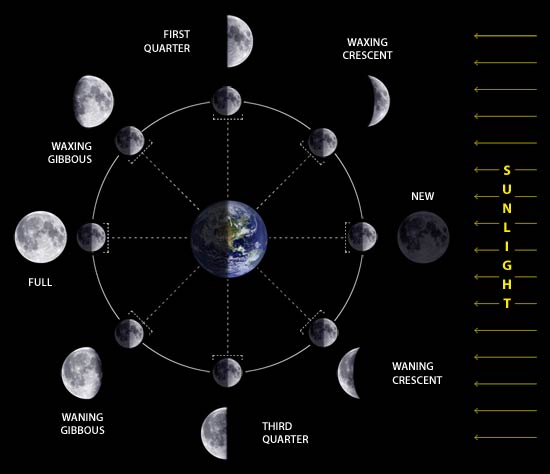
This post is devoted to wax, the verb, not wax, the noun (the stuff that crayons and candles are made of). I've always wondered where we got the verb 'wax' from, so I decided to look it up.
The OED defines 'to wax' as "To grow, increase (as opposed to wane)" and gives us the following important information:
Originally a more frequent synonym of GROW v., which has now superseded it in general colloquial use, except with reference to the moon (see 6, which defines wax as "of the moon: to undergo the periodical increase in the extent of its visible illuminated portion, characteristic of the first half of the lunation"). With this exception, the senses below which are not marked as obsolete are confined to literary use, and have, in varying degrees, a somewhat archaic flavour; some of those under branch I survive only in the traditional antithesis with WANE v. The verb is said still to be current in certain dialects: see Eng. Dial. Dict.
It also tells us that wax v. was a common Teutonic strong verb, and that the Old English verb weaxan had numerous similar Germanic siblings.
Because we have noted the importance of wax v. in contrast to wane v., it should not be surprising,then, that wane means "to grow less, decrease (opposed to wax)" and is likewise a verb native to English, having numerous Germanic siblings which are quite similar to it in form.
Don't you find it rather interesting that people still will say the phrase "wax poetical" and yet we don't really say that someone "wanes poetical"? It's just interesting how certain words become petrified into sayings to the point that we still use them, though not as frequently as we used to.
All quotes and information are from the OED and the image is used from www.astronomycast.com.
No comments:
Post a Comment
Note: Only a member of this blog may post a comment.